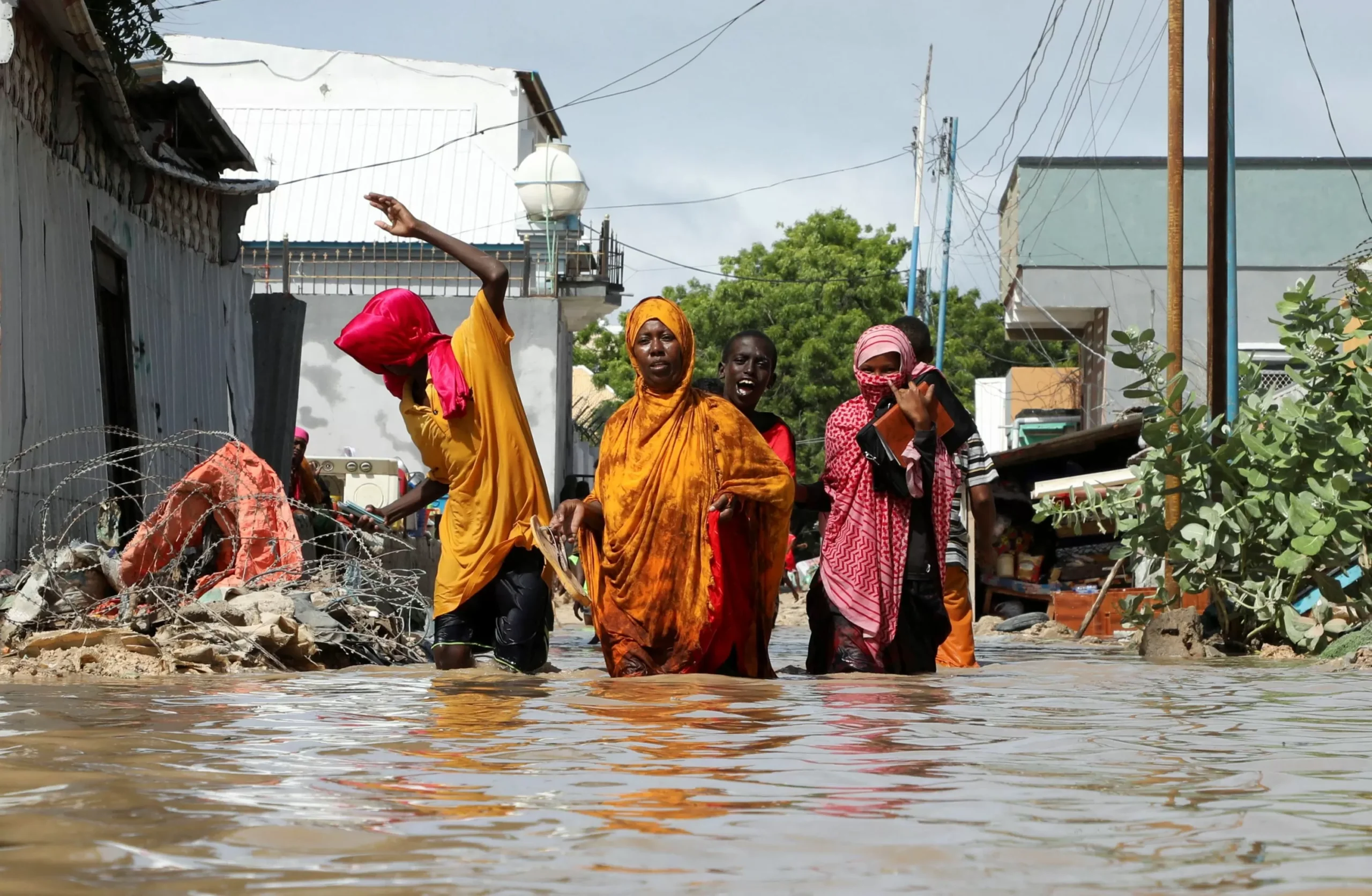At least seven people, including two women and two children, were killed after relentless overnight downpours flooded Somalia’s capital, Mogadishu, toppling homes, trapping residents and causing widespread destruction.
The heavy rains, which began on Friday evening and continued into the early hours of Saturday, have left the city in a state of chaos and devastation. The downpour caused flash floods, submerging entire neighborhoods and washing away roads and bridges.
The Somali government has declared a state of emergency and has called for immediate aid and assistance from the international community. Rescue teams are working tirelessly to locate and save those who are still trapped in the debris of collapsed buildings.
The situation in Mogadishu is dire, with thousands of people displaced and in urgent need of food, shelter and medical assistance. The flooding has also caused a shortage of clean drinking water, increasing the risk of waterborne diseases.
The most affected areas include the districts of Hodan, Wadajir, Hamarweyne and Daynile, where the majority of the casualties were reported. The heavy rains have also caused damage to infrastructure, including hospitals and schools, further exacerbating the already fragile situation in the city.
The devastation caused by the floods is a stark reminder of the vulnerability of the people of Mogadishu, who have been facing years of conflict and instability. The city, which is still recovering from years of civil war, lacks proper drainage systems and is ill-equipped to handle such heavy rainfall.
The Somali government has promised to take immediate action to address the aftermath of the floods and provide relief to those affected. The Prime Minister, Hassan Ali Khaire, has urged the international community to come forward and support the country in this time of crisis.
The United Nations and other aid agencies have also stepped in to provide emergency aid and assistance to the affected communities. The UN has pledged to provide food, shelter, and medical supplies to those in need.
The resilience and strength of the Somali people in the face of such a devastating disaster is truly commendable. Despite the loss of lives and destruction of homes, the people of Mogadishu have come together to help each other and support their community.
The tragedy has also brought to light the importance of disaster preparedness and the need for better infrastructure in the city. The Somali government must take immediate steps to improve the drainage systems and build stronger homes to withstand future disasters.
The international community must also play its part in providing long-term solutions to prevent such disasters from occurring in the future. This includes investing in infrastructure, providing technical assistance and supporting the government in its efforts to mitigate the impact of climate change.
The floods in Mogadishu serve as a wake-up call for all of us to take action against the effects of climate change. It is a reminder that we must work together to build a more resilient and sustainable future for all.
In the midst of this tragedy, we have also seen the best of humanity as people from all walks of life have come together to help those in need. It is heartwarming to see the spirit of solidarity and compassion that has emerged in the face of adversity.
We must continue to stand in solidarity with the people of Mogadishu and support them in any way we can. Let us come together and show them that they are not alone in this difficult time.
The loss of lives and destruction caused by the floods in Mogadishu is a tragedy that will not be forgotten. But let us also remember the resilience and strength of the Somali people, who have shown us that even in the darkest of times, there is always hope and the power of human kindness. Let us continue to spread positivity and support each other in the face of adversity.





![Complete BritRail Pass Guide [Types, How to Use It, Pros + Cons]](https://inside-news.uk/wp-content/uploads/2025/06/00221EB4-BCA2-4DBB-6CD4-83DBC37D71FA-120x86.webp)
















